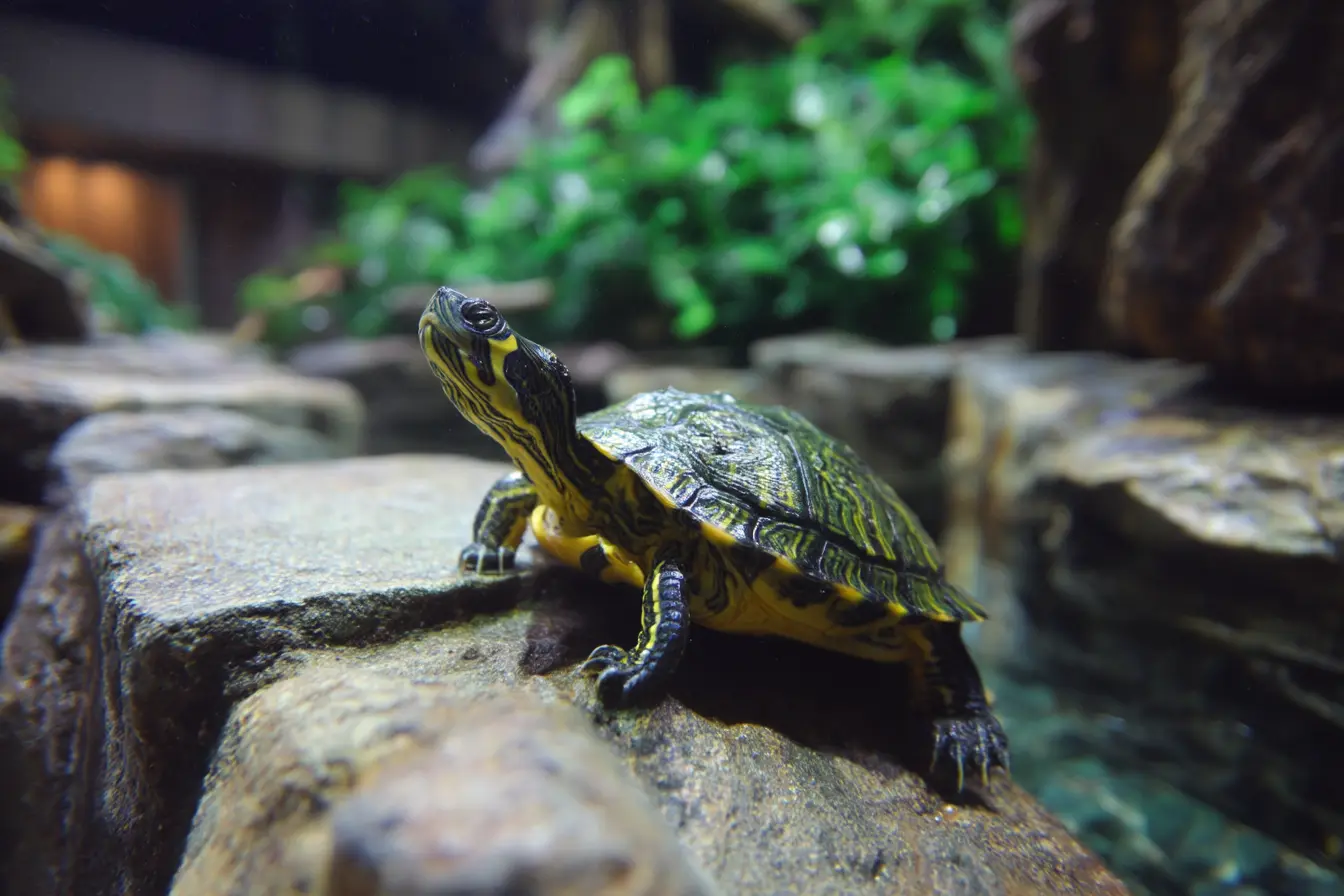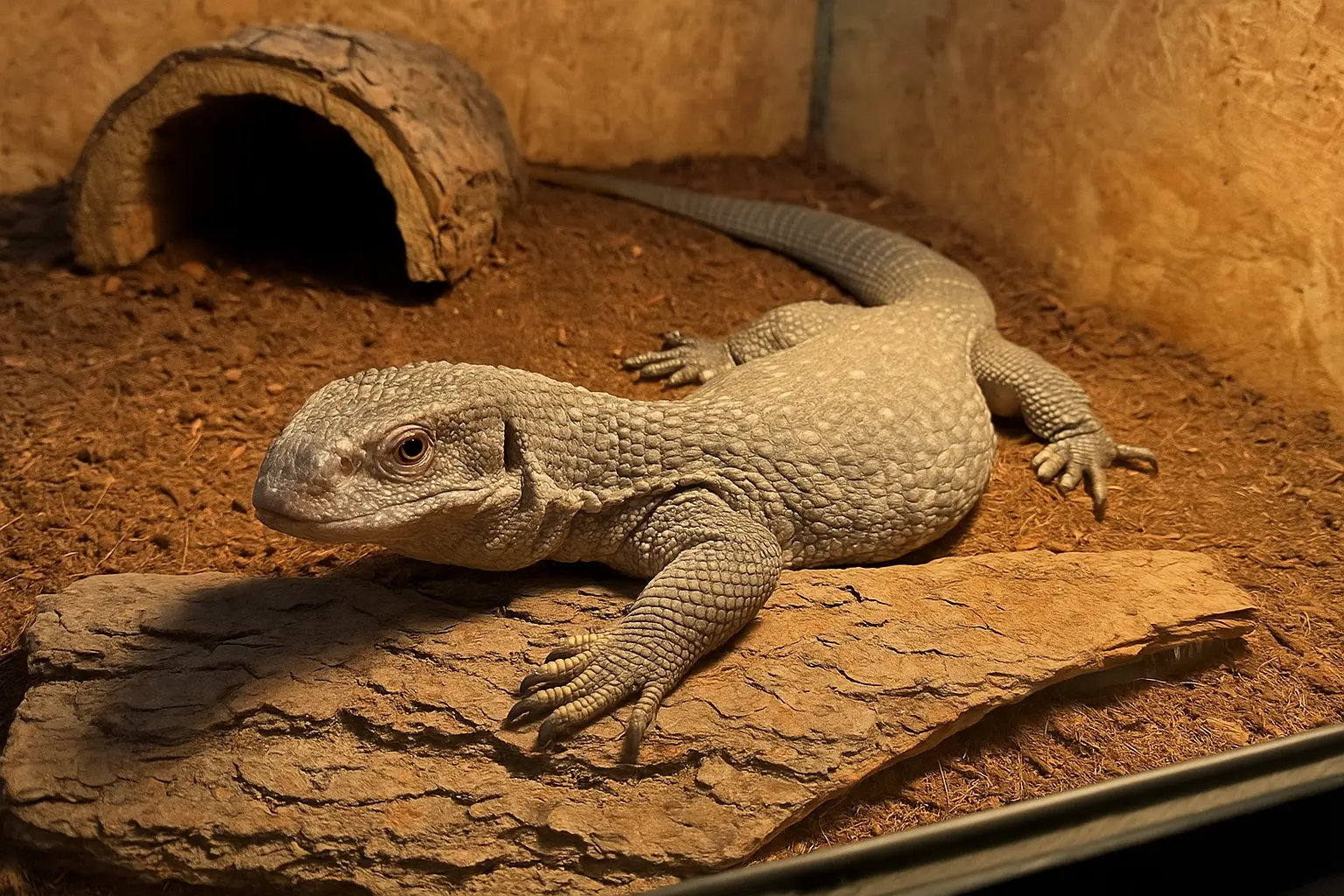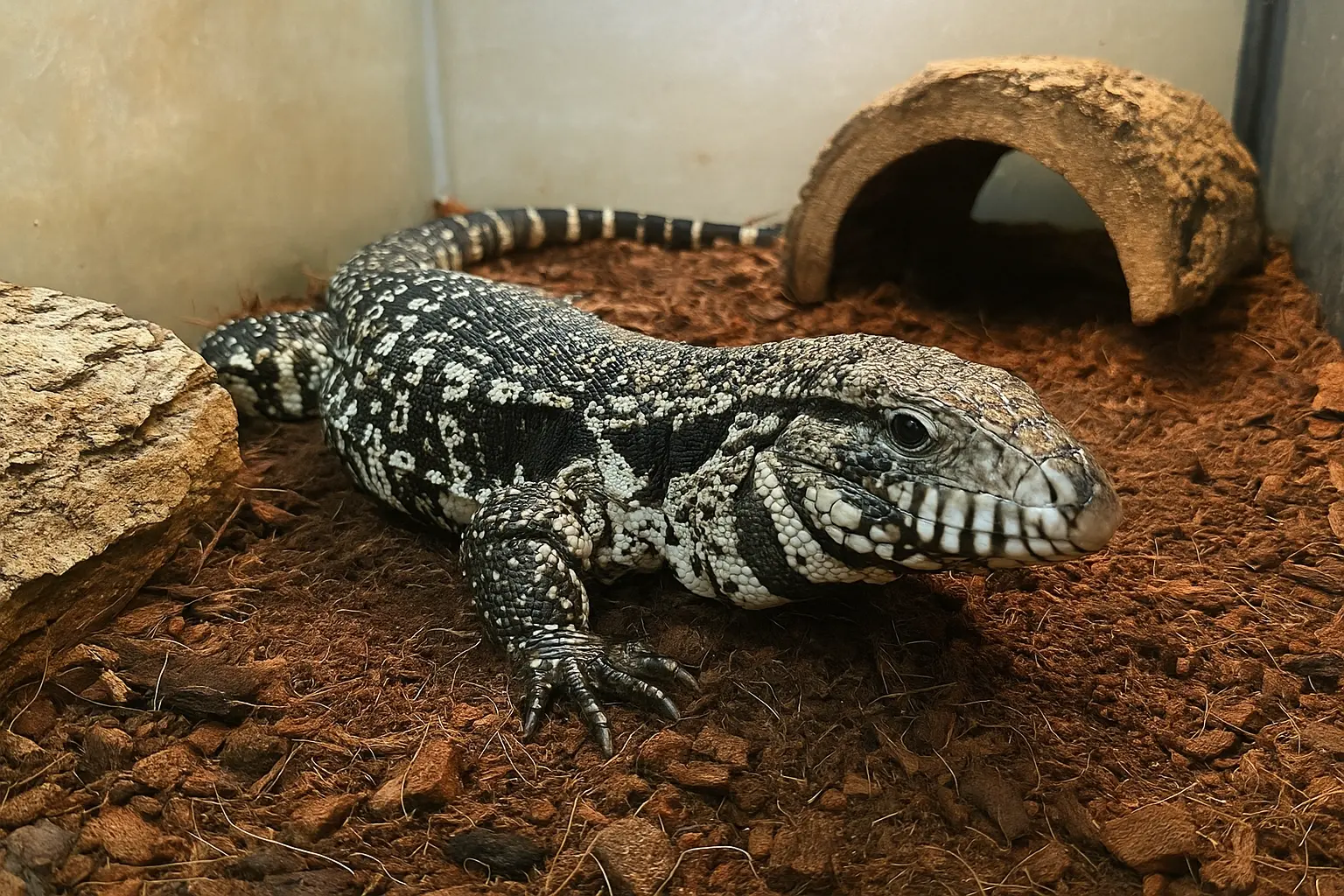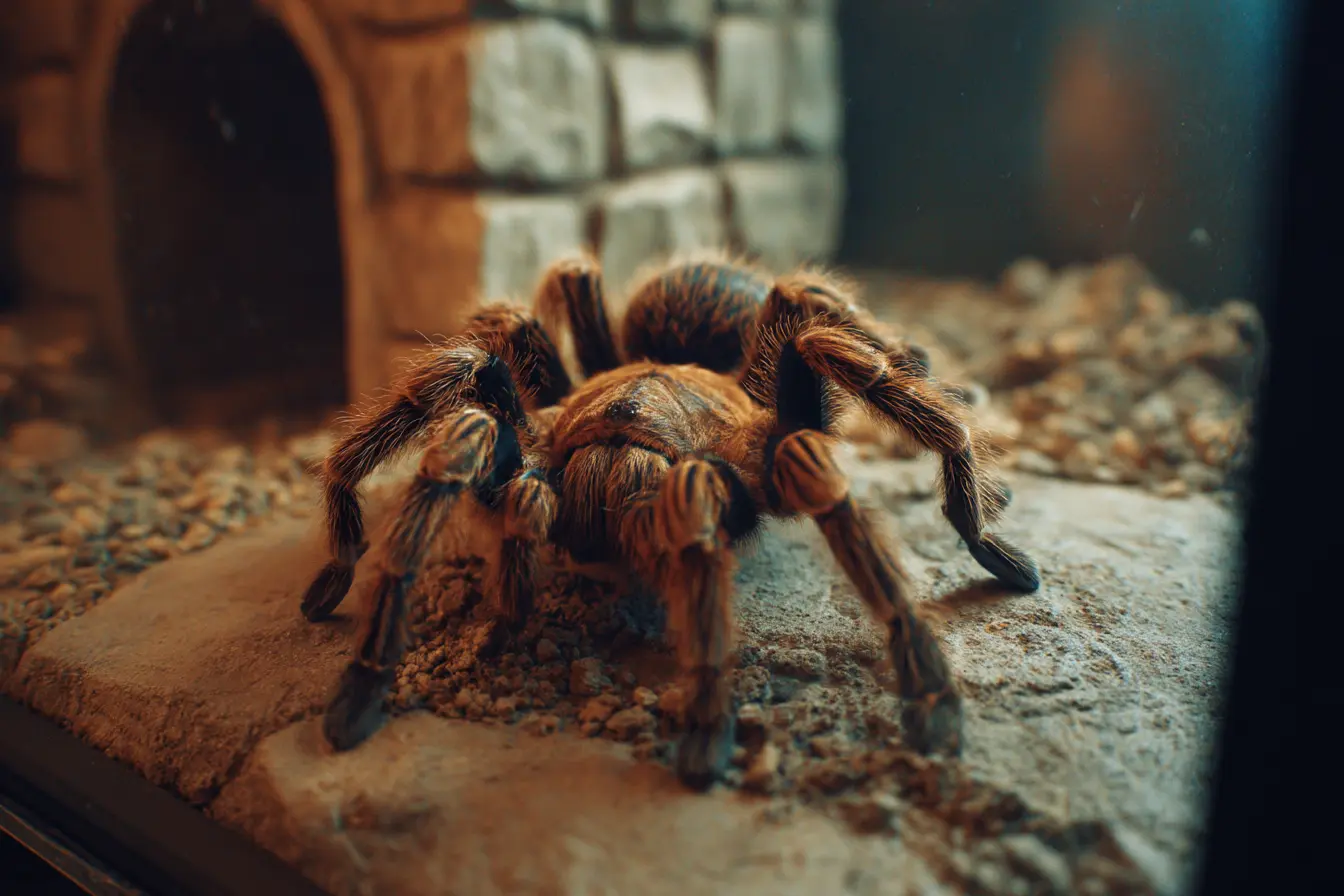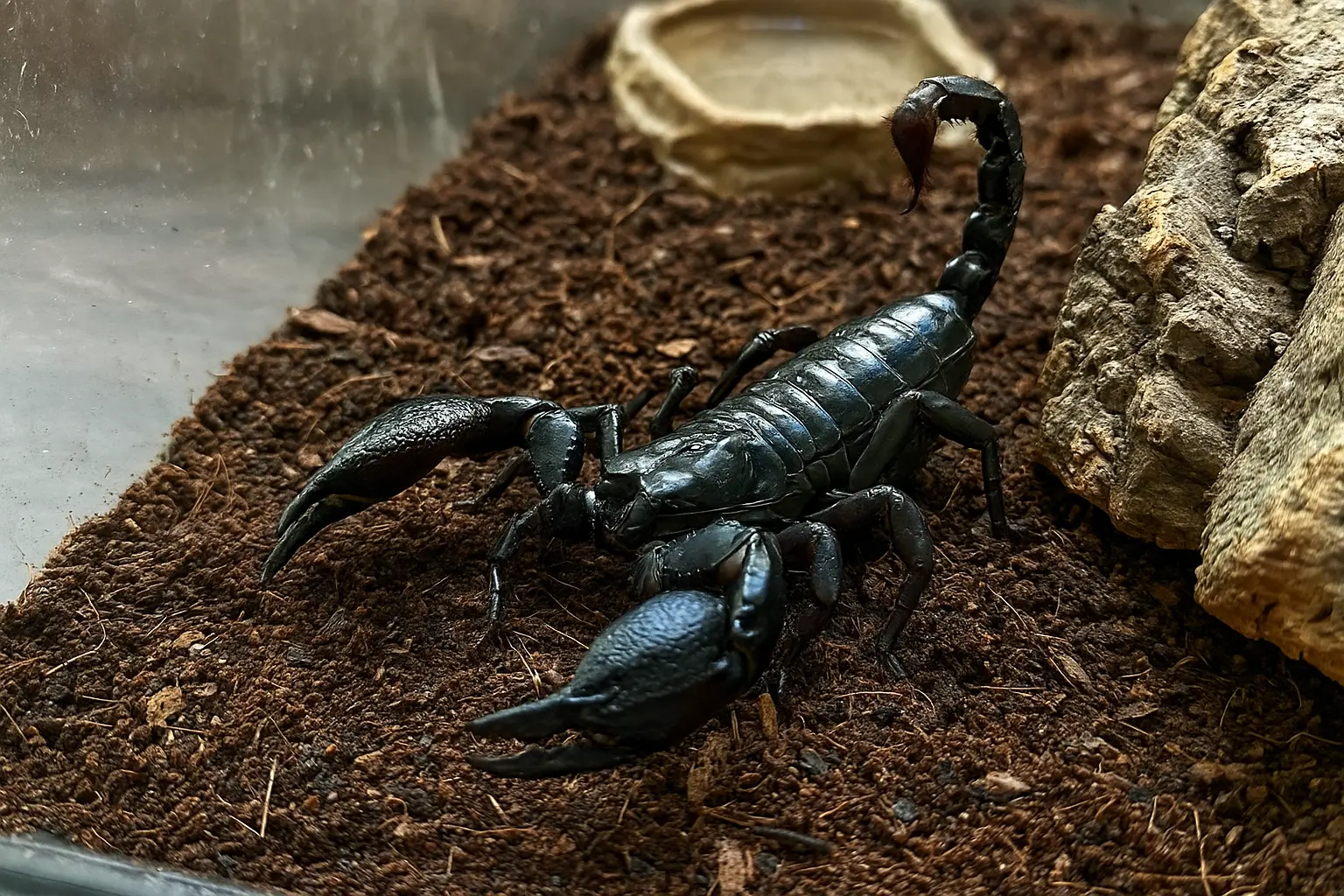
Thinking of Getting an Asian Forest Scorpion? Here’s Everything You Need to Know
The Asian Forest Scorpion (Heterometrus spp.) is a striking and formidable-looking arachnid often mistaken for its more well-known cousin, the Emperor Scorpion. While not quite as docile, the Asian Forest Scorpion is a fascinating pet for those who appreciate the unique behaviours of invertebrates and are ready to provide specialised care.
Whether you’re a seasoned exotic keeper or a curious beginner, this guide will walk you through everything you need to know about caring for this remarkable species.
Quick Facts
- Scientific Name: Heterometrus longimanus, Heterometrus spinifer, and other Heterometrus species
- Origin: Southeast Asia (India, Malaysia, Indonesia, Thailand)
- Size: Up to 15–20 cm (6–8 inches)
- Lifespan: 5–8 years in captivity
- Temperament: Defensive, not recommended for handling
- Venom: Mild to moderate (similar to a bee or wasp sting)
- Diet: Insectivorous
Is an Asian Forest Scorpion Right for You?
Asian Forest Scorpions are not pets for handling or play. They’re more suitable for observation and are best kept by owners who appreciate naturalistic terrarium setups and the nocturnal behaviours of exotic invertebrates.
Pros
- Visually impressive and highly active at night
- Relatively hardy and low-maintenance
- Long lifespan for an invertebrate
- Fascinating behaviours such as digging, hunting, and defending territory
Cons
- Defensive and prone to pinch or sting if provoked
- Not suitable for handling
- Requires strict humidity and temperature control
- Often confused with Emperor Scorpions (but temperament is more aggressive)
Housing Requirements
Setting up the right enclosure is key to a healthy and stress-free scorpion.
Enclosure
- A 40–60 litre glass or plastic terrarium with a secure lid is ideal
- Avoid enclosures that are too tall—these scorpions are poor climbers
- Provide 10–15 cm of moisture-retentive substrate (coconut coir, eco-earth, or soil mix)
- Suitable for individual housing; if keeping multiples, provide ample space and hides to prevent aggression
Temperature and Humidity
- Temperature: Maintain between 24–30°C (75–86°F) using a heat mat on the side
- Humidity: 75–85% humidity is essential; mist daily and monitor with a hygrometer
- Water: Provide a shallow water dish with clean water at all times
Lighting
- No special lighting is required; they are nocturnal and prefer low-light conditions
- Avoid direct sunlight or bright artificial lights, which can cause stress
Decor and Hides
- Use natural materials such as cork bark, half logs, or stone caves as hides
- Provide multiple hiding areas if housing more than one scorpion
- Live plants are optional but can help maintain humidity and enhance aesthetics
Feeding and Diet
Asian Forest Scorpions are insectivores and require a live prey diet.
Recommended Foods
- Crickets
- Dubia roaches
- Locusts
- Mealworms or superworms (occasionally)
Feeding Frequency
- Juveniles: every 2–3 days
- Adults: once or twice per week
- Remove uneaten prey after 24 hours to prevent stress or injury
Handling and Behaviour
These scorpions are not recommended for handling due to their defensive nature.
- They are more likely to use their powerful pincers than their sting
- Handling can cause stress and should be limited to enclosure maintenance
- Use soft tongs or a small container to move them when necessary
Cleaning and Maintenance
- Spot clean regularly to remove waste and uneaten prey
- Replace substrate every 2–3 months or if it becomes mouldy
- Clean the water dish daily
- Deep clean the enclosure periodically with reptile-safe disinfectants
Health and Common Issues
Signs of a Healthy Scorpion
- Glossy, intact exoskeleton
- Active at night
- Regular feeding and burrowing
Common Problems
- Dehydration: Keep humidity consistent and always provide fresh water
- Mites or mould: Caused by excess moisture or poor ventilation
- Failed moults: Usually due to low humidity; avoid disturbance during moulting periods
Legal and Ethical Considerations
- Always source your scorpion from reputable breeders or pet shops
- Avoid wild-caught specimens where possible due to the impact on native populations
- Check local regulations on exotic pet ownership
Asian Forest Scorpion vs Emperor Scorpion
While they may look nearly identical, there are key differences between these two species:
- Temperament: Asian Forest Scorpions are generally more defensive and quicker to pinch or posture than the more docile Emperor Scorpion.
- Colour: Asian Forest Scorpions tend to be glossier black, while Emperor Scorpions may appear more matte with a brownish tinge.
- Native Range: Asian Forest Scorpions are found in Southeast Asia, while Emperor Scorpions are native to West Africa.
- Availability: Emperor Scorpions are more commonly available in the pet trade; Asian Forest Scorpions are often sold under incorrect labels.
Final Thoughts
Owning an Asian Forest Scorpion can be an incredibly rewarding experience for those who enjoy observing exotic animals in a carefully crafted habitat. They require a bit of work up front to get their enclosure just right, but once established, they are relatively simple to maintain.
They’re not pets for everyone, but if you’re drawn to the mysterious world of arachnids and can respect their boundaries, the Asian Forest Scorpion might just be the perfect addition to your exotic pet collection.
Always do your research, invest in a proper setup, and you’ll be well on your way to providing a safe, healthy home for your scorpion.
Vets near you
Speciality vets
- Aquatics vet specialists
- Birds vet specialists
- Camelids vet specialists
- Cats vet specialists
- Cattle vet specialists
- Deer vet specialists
- Dogs vet specialists
- Equines vet specialists
- Exotic vet specialists
- Goats vet specialists
- Pigs vet specialists
- Poultry vet specialists
- Sheep vet specialists
- Small Mammals vet specialists
- Wild vet specialists
Vet facilities
- Accessible by public transport
- Blood testing
- Car park nearby
- Client car park
- Dentistry
- Diagnostic imaging
- Disabled public access
- Flea and worm treatments
- Microchipping
- Mobile services
- Neutering
- Open at weekends
- Out-of-hours service
- Referral interests
- Referrals only
- Street parking outside
- Toilets available
- Vaccinations
